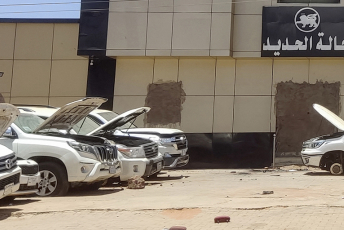On 11 January 2022, Nairobi was plunged into darkness. Kenya Power had lost its supply due to collapsed towers along the Kiambere-Embakasi high voltage transmission power line. Cross beams on the angle towers had been removed by vandals sourcing scrap metal, causing the towers to collapse.
That same month, Kenya’s president Uhuru Kenyatta imposed a national ban on the local trade and export of scrap metals and scrap batteries. As well as protecting essential metal infrastructure from vandalism, the ban sought to protect East Africa’s lead-acid battery manufacturers, who obtain their raw materials by collecting scrap batteries from homes and garages. Scrap metals are used to produce steel products in the housing and road- construction industries and scrap batteries are also used for the manufacture of lead-acid batteries.
In May 2022, the trade minister lifted the ban on the local trade in scrap metals, while maintaining the ban on scrap metal exports. The ban was lifted after the development of scrap metal regulations that stipulated higher penalties for those found guilty of repeated offences of scrap metal exports from Kenya.
The Scrap Metal Rules, 2022, updated the penalties previously imposed by the Scrap Metal Act by adding that second-time offenders be fined approximately $132,000 and serve a five-year prison sentence, or both.
However, it seems that these new regulations are doing little to reduce the vandalism of public infrastructure, and theft that feeds scrap metal smuggling from Kenya to the rest of East Africa. In May 2023, the Kenya Revenue Authority intercepted five lorries transporting stolen scrap metal and scrap batteries to Tanzania at the Taveta border. In the same month, a joint operation between police and Kenya Power saw scrap metal dealers arrested in possession of property belonging to electricity or telecommunication companies. Similarly, in August 2023, scrap metal dealers were caught vandalising government vehicles at a garage in Nairobi.
According to Kenya’s Scrap Metal Council, the smuggling of scrap metal in East Africa is aided by porous borders. Busia, Namanga, Taveta and Lungalunga are some of the key hotspots through which scrap metal is smuggled into Uganda and Tanzania.
In 2022, the Kenya Roads Board set aside approximately US$40m (KES5.9 billion) to replace vandalised road barriers, poles, road lights, bridges and electric wires due to the continuous destruction of this public infrastructure as organised criminals profit from the rising demand for scrap metal in East Africa.
The illicit value chain that sustains the scrap metal trade at the local level starts with ‘collectors’, who vandalise public communication or transport infrastructure to steal metal and then supply warehouses or scrap metal yards. They sell the scrap metal to warehouses or yards for US$0.26/kg and to other traders for $0.33/kg. The warehouse owners then sell to larger warehouses, which collude with transporters and border officials to export to neighbouring countries, including Tanzania.
While the presidential ban on the export of scrap metal and scrap batteries ensured a crackdown on scrap metal collectors in major towns such as Nairobi, Nakuru, Nyeri and Kisumu, it spared the owners of warehouses and scrap yards who are critical recipients and exporters of scrap metals from Kenya to the region. Other segments of the illicit value chain have also been in the spotlight recently.
In May 2023, scrap metal dealers were linked to the involvement of child labour in the collection of metals in Kericho County. Kericho County Children Officer Daniel Kiba noted the increased number of children dropping out of school to engage in the collection of scrap metal for sale to nearby scrap yards and warehouses.
Battery Manufacturers Association spokesman Peter Wafula says the illegal export of scrap metals and scrap batteries continues because even though there are seizures, the licences of the dealers whose trucks are intercepted at border points while exporting scrap metals have not been cancelled.
Further, the lack of a regional framework to inhibit the illicit market makes the Tanzanian market for Kenyan scrap metal smugglers viable. In Tanzania, scrap metal dealers are fined only US$4 000 for exporting scrap metal without a licence. In Kenya it’s over US$65 000.
While fines have been imposed on dealers, the Scrap Metal Council believes that revoking trade licences will be a key measure to deter the trade in stolen metal. They also believe this will enhance the regulation of the scrap metal industry in Kenya and protect critical infrastructure from vandalism.
Kenya’s government must work together to coordinate the various agencies to share information and work in alignment – especially in collecting information, conducting border surveillance and prosecuting those who violate the ban on scrap metal exports, including corrupt officials facilitating the cross-border smuggling in East Africa.
Kenya – as the source of scrap metal smuggled into the rest of East Africa – additional practical measures will contribute to tighter controls. This could include a permit system for the importation of furnaces and other scrap transformation machines used to facilitate scrap metal smuggling, as has been proposed in South Africa. This system would help track those who are vandalising and smelting metal from public infrastructure.
As with so many cross-border organised crime, in wider East Africa, harmonising legislation and penalties would increase the prospects of disrupting the theft and smuggling of scrap metals and in turn limit the costs associated with vandalised public infrastructure.
Willis Okumu, Senior Researcher, ENACT
Image: Global Press / Alamy Stock Photo







